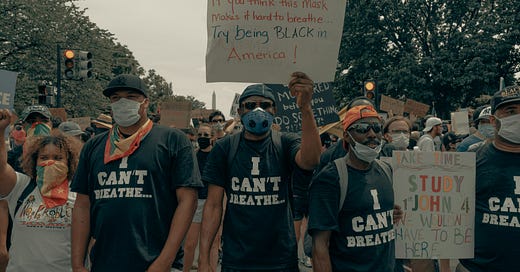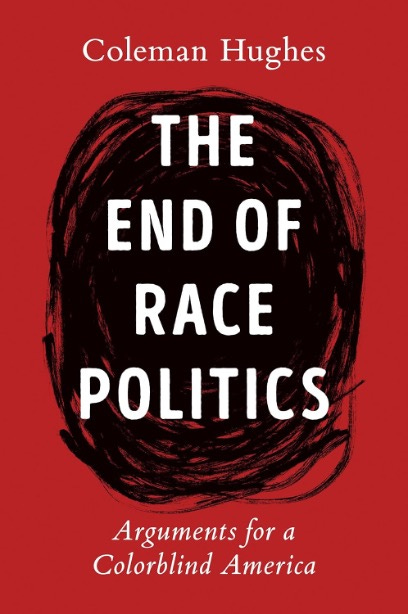tl;dr – This is a quick, well-argued book by Hughes. He argues that the current hyperfocus on race will not achieve the stated goals of anti-racist activists and has only caused division. Instead, a colorblind approach as advocated by MLK is needed. Unfortunately, it’s likely a book that won’t be read by dissidents of this viewpoint, although I think it should be.
There is no escaping discussions of race in today’s America. Beginning in the early 2010s, ‘identity’, including race, took over the conversations about equality and justice. The hyperfocus on racial identity reached its peak during the 2020 protests following the murder of George Floyd. Only today do we see any sign that things might be turning around.
Coleman Hugues, a prominent public intellectual, has been critical of the hyperfocus on race for the good of our society and specifically for the good of black Americans. In his debut book, The End of Race Politics: Arguments for a Colorblind America, Hughes argues that America must return to the colorblind roots of The American Civil Rights Movement and ditch the current ‘anti-racist’ ideology that is brewing resentment, fear, and paranoia across America.
Race politics today center on philosophies from prominent thought leaders like Ibram X. Kendi that is branded as ‘anti-racism’. In his book Hughes outlines that the anti-racist narrative at the center of public discourse today believes that 1) racial disparities are the direct result of racial discrimination, 2) new racial discrimination against white Americans will undo past discrimination against black Americans, 3) little progress has been made in combating racism, 4) black Americans inherit the trauma of slavery and other historical discrimination, 5) non-whites have knowledge that white people could not possess, and 6) claims made by white people can be dismissed based simply on the fact that they are white. Rather than ‘anti-racist’, Hughes refers to them as ‘neoracists’.
The crux of his argument is that colorblindness as a philosophy for combating racism is what the American Civil Rights Movement was based on. Hughes cites endless quotes and arguments from leaders like Martin Luther King Jr. espousing colorblindness as the way forward for remedying racism, and explicitly calling out countering white supremacy with black supremacy.
As a solution, Hughes proposes that we need to condemn the current anti-racist approach and instead 1) treat race as a neutral fact about people, 2) stigmatize racist talk from anyone or group, 3) use blind processes as much as possible, 4) promote equity through high-intensity educational interventions from early ages.
Overall, I appreciated this book for outlining his arguments so clearly with reasonable solutions that might actually make a positive difference. I also greatly appreciated the basic history lesson about colorblindness. I recommend this book, but I think few people who identify as anti-racist would care to pick up or engage with this book.
Published: February 2024
Publisher: Thesis
Format: Hardcover
If you think this sounds interesting, bookmark these other great reads:
Woke Racism: How a New Religion Has Betrayed Black America (2021) by John McWhorter | Read my review
Discrimination and Disparities (2019) by Thomas Sowell
This post contains affiliate links, allowing me to earn a small commission when you purchase books from the link provided. There is no cost to you, and this will allow me to keep this newsletter free and open to all. Happy reading!






